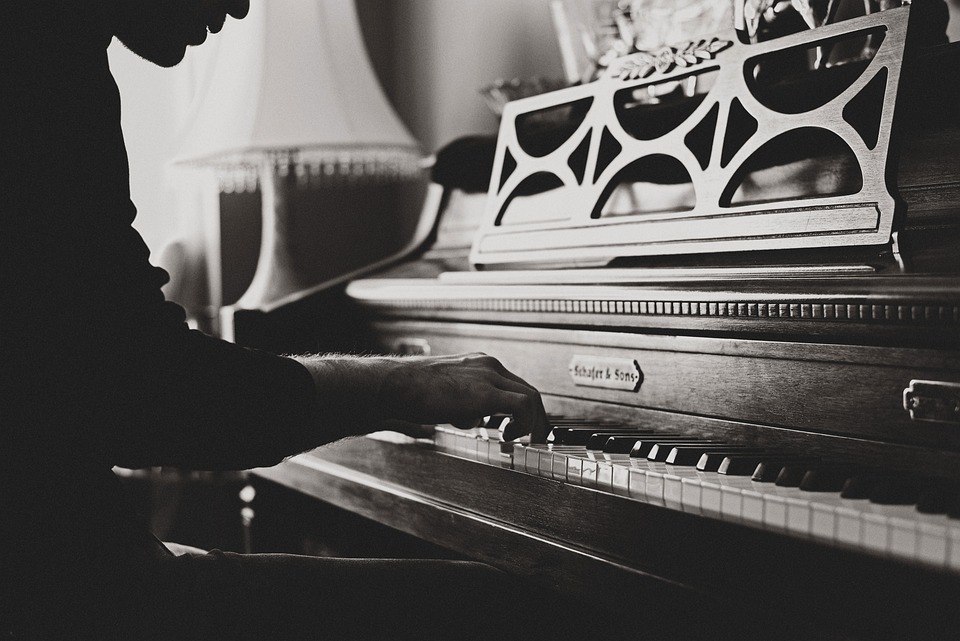Introduction to Copyright in Music
Copyright is a vital aspect of the music industry that protects the creative works of artists. As music creation becomes more accessible through digital platforms like BandLab, understanding copyright becomes crucial. This article delves into whether BandLab loops are protected under copyright law and what that means for musicians and creators.
What is Copyright?
Copyright is a legal framework designed to protect the original works of creators, allowing them to control the use of their creations. In the context of music, copyright covers various elements, including melodies, lyrics, and arrangements. When someone creates a piece of music, they automatically hold the copyright unless they transfer their rights to someone else.
This protection extends to various formats, including written scores, recordings, and digital files. It grants the creator exclusive rights to reproduce, distribute, and publicly perform their music. Understanding these rights is essential for anyone involved in music, whether they are performers, producers, or casual users of music creation platforms.
Understanding BandLab and Its Loops
BandLab is a cloud-based music creation platform that allows users to create, collaborate, and share music. One of its key features is the availability of loops and samples, which are pre-recorded pieces of music that can be used to enhance original compositions. These loops can range from drum beats to melodic phrases, making them a popular choice for music producers and enthusiasts.
When using BandLab, it’s essential to understand the source and ownership of the loops. BandLab provides a library of loops, but the copyright status of these loops can vary. Knowing whether these loops are protected by copyright will help users navigate the legalities of music creation.
Are BandLab Loops Copyrighted?
The copyright status of BandLab loops depends on several factors, including their origin and the licensing agreements associated with them. Generally, loops provided by BandLab are licensed for use within the platform, meaning users can incorporate them into their projects without facing legal issues. However, this does not mean that users own the copyright to these loops.
When you use a loop from BandLab, you usually receive a non-exclusive license, which allows you to use the loop in your music. However, users should be cautious when attempting to distribute their music commercially, as the copyright for the loop remains with BandLab or the original creator. Thus, while you can use the loops for personal projects or non-commercial releases, distributing them commercially may require additional permissions.
Licensing and Usage Rights
Licensing is a critical aspect of using BandLab loops. When you create music with these loops, you grant yourself a certain level of usage rights, but those rights are not absolute. BandLab typically offers users a user-friendly license that allows for the creation of derivative works, but users must adhere to specific guidelines.
For instance, while you can use the loops in your songs, BandLab may prohibit the resale of the loops as standalone products or their use in other music production software. Therefore, understanding the licensing agreement is vital. Always review BandLab’s Terms of Service and licensing details carefully to avoid potential copyright infringements.
Creative Commons and Public Domain Loops
Some loops available on various music platforms, including BandLab, may fall under Creative Commons licenses or be in the public domain. Creative Commons is a licensing system that allows creators to share their works under specific conditions. There are various types of Creative Commons licenses, ranging from those that allow commercial use with attribution to those that limit alterations and commercial use.
Public domain works, on the other hand, are not protected by copyright, meaning anyone can use them without seeking permission. If you come across loops from these categories, you have more flexibility in how you use them. However, it is essential to verify the license type before using any loop to ensure compliance with the terms provided.
What Happens if You Violate Copyright?
Violating copyright is a serious matter that can lead to significant legal consequences. If a creator uses BandLab loops without understanding the copyright implications, they may face penalties, including fines or legal action. Copyright infringement occurs when someone uses a copyrighted work without permission or fails to adhere to licensing agreements.
In the case of BandLab loops, if you distribute a song commercially that includes these loops without proper licensing, you risk having your music taken down or facing a lawsuit. It’s crucial to be aware of your rights and responsibilities when using loops or samples in your creations to avoid any infringement issues.
Best Practices for Using BandLab Loops
To stay within the legal boundaries while using BandLab loops, it’s essential to follow best practices. First, always check the licensing agreements associated with the loops you intend to use. This can help you understand what is permissible and what isn’t.
Second, consider creating original content around the loops. By adding your unique elements, you can enhance the music while adhering to copyright laws. Lastly, if you plan to release your music commercially, consult a copyright lawyer to clarify any uncertainties regarding the use of BandLab loops or other samples.
Collaborating with Other Artists on BandLab
Collaboration is one of the hallmarks of BandLab, allowing musicians to work together from anywhere in the world. However, when collaborating, it’s crucial to discuss copyright and ownership issues upfront. Each contributor should understand how the loops and original pieces will be used and how profits or credits will be shared.
Clear communication about copyright can prevent misunderstandings and conflicts later on. For instance, if one collaborator uses a BandLab loop as a primary element of a track, all contributors should agree on how that will be handled in terms of royalties and credits.
Conclusion
Understanding copyright is essential for anyone involved in music creation, particularly with platforms like BandLab. While BandLab loops provide great opportunities for creativity, they come with specific copyright considerations. Users must navigate the licensing agreements carefully and be aware of the potential consequences of copyright infringement. By following best practices and consulting legal resources when needed, musicians can enjoy the benefits of BandLab loops while respecting the rights of creators.
FAQs
1. Can I use BandLab loops in my YouTube videos?
Yes, you can use BandLab loops in your YouTube videos as long as you comply with BandLab’s licensing agreements. However, be cautious about any monetization aspects, as this may require additional permissions.
2. Are BandLab loops free to use for commercial purposes?
BandLab loops are generally not free for commercial use without proper licensing. You can use them for personal projects, but distributing them commercially requires understanding the licensing rules and possibly obtaining permission.
3. Can I remix a song that includes BandLab loops?
Remixing a song that includes BandLab loops is permissible as long as you follow the licensing guidelines. However, ensure that the original creator of the song agrees to the remix, and clarify how the loops are used.
4. What should I do if I receive a copyright claim on my music?
If you receive a copyright claim on your music, review the claim carefully. Determine whether you used copyrighted material without permission and consider contacting the claimant to resolve the issue amicably.
5. How can I ensure my original music is protected?
To protect your original music, consider registering your work with a copyright office. This provides legal documentation of your ownership and can be helpful in case of infringement disputes.

